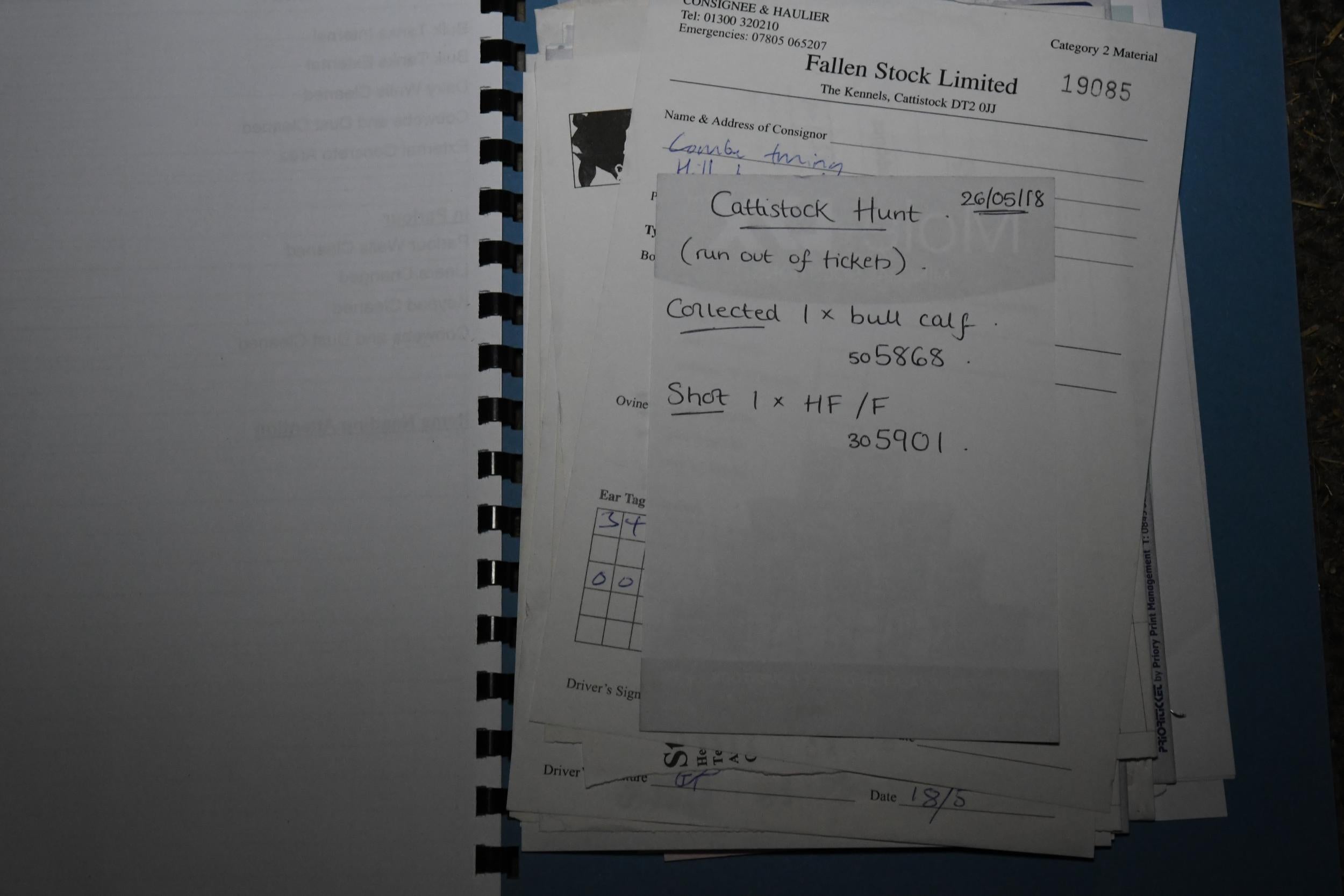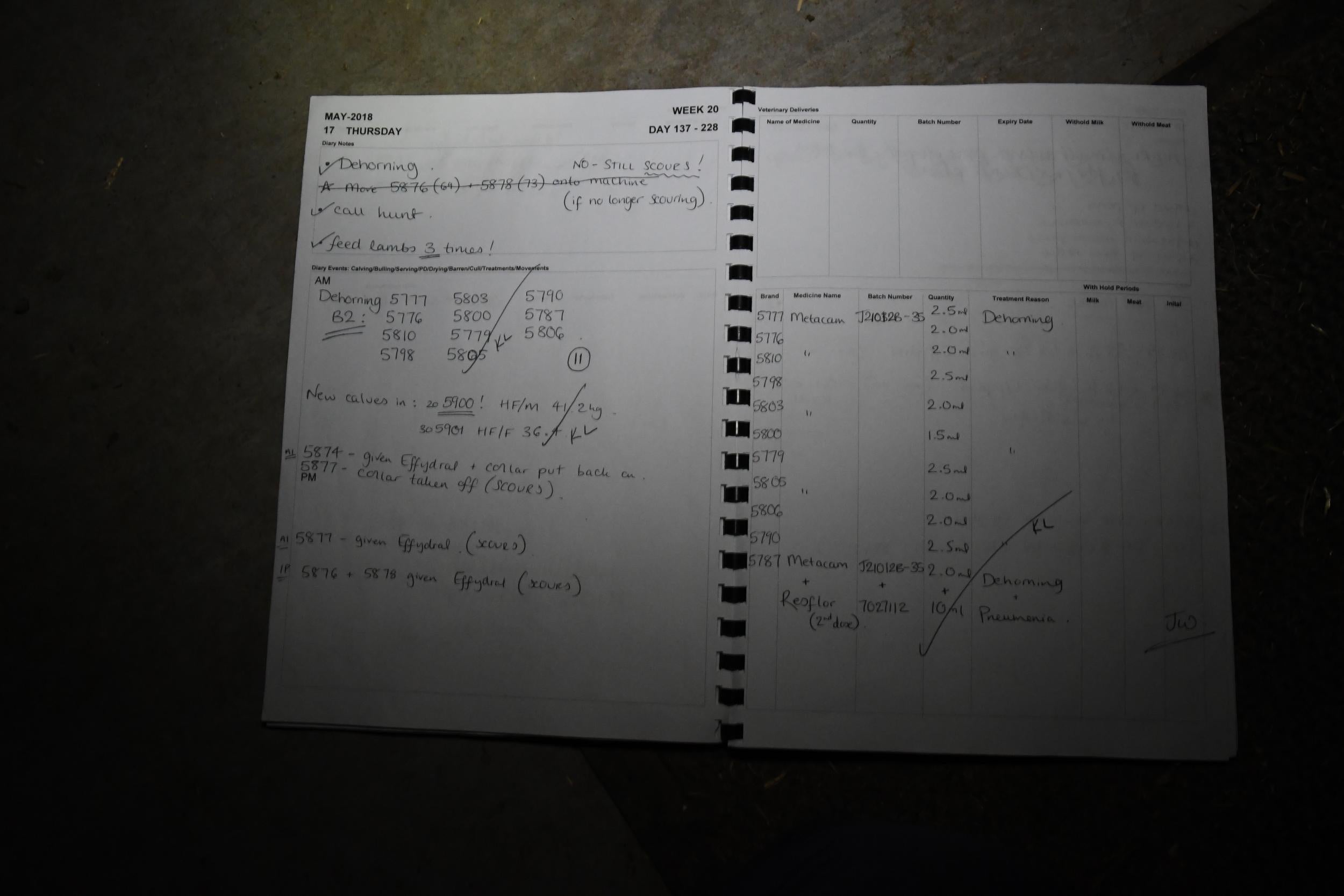Organic dairy farm supports hunting by offering dead animals as food for hounds
Exclusive: 'Consumers buying organic milk will be appalled to know they are inadvertently helping hunts'
Your support helps us to tell the story
From reproductive rights to climate change to Big Tech, The Independent is on the ground when the story is developing. Whether it's investigating the financials of Elon Musk's pro-Trump PAC or producing our latest documentary, 'The A Word', which shines a light on the American women fighting for reproductive rights, we know how important it is to parse out the facts from the messaging.
At such a critical moment in US history, we need reporters on the ground. Your donation allows us to keep sending journalists to speak to both sides of the story.
The Independent is trusted by Americans across the entire political spectrum. And unlike many other quality news outlets, we choose not to lock Americans out of our reporting and analysis with paywalls. We believe quality journalism should be available to everyone, paid for by those who can afford it.
Your support makes all the difference.Organic milk may not be as animal-friendly as it appears as at least one chemical-free dairy farm has been found giving dead calves to a local hunt to feed hounds.
Coombe Farm in Somerset, which last month was dropped by Waitrose after being exposed for cruelty to animals, has supplied “fallen” livestock to the Cattistock Hunt in Dorset, paperwork seen by The Independent shows.
Animal welfare campaigners said it was common for standard farms to supply hunt kennels but that this evidence shows that those buying organic milk may inadvertently be supporting hunting.
“Knowing that more than 80 per cent of people in Britain are opposed to fox-hunting, I think consumers, especially those buying organic milk, will be appalled to know that they are inadvertently helping hunts to keep operating,” said Toni Shephard of Animal Equality, which photographed the paperwork.
“People often choose organic milk believing the methods are less cruel but our investigation showed otherwise. In addition to the suffering of cows and their calves, consumers are inadvertently helping to keep hunts in business by enabling a constant supply of carcasses.”
In one case, a diary note read “Call hunt”; another note, headed Cattistock Hunt, listed a bull calf as having been collected and a female Holstein Friesian cow or calf as having been shot.
It was unclear whether the farm or the hunt shot the creature but the hunt would also have taken her carcass for the hounds.
Underneath is notepaper printed with the heading of “Fallen Stock Limited”, at the address of the Cattistock Kennels. “Fallen stock” also means animals those that have died of natural causes as well.
Coombe is written in as the customer’s name.
This is a common way for traditional dairy farms to dispose of male calves that are unwanted in dairy production
In 2015, the Cattistock Hunt was charged with illegal hunting, but the RSPCA eventually dropped the case. Like other hunts, it insists it practises legal trail-hunting.
A third entry in the diary shows one dead calf or cow, with the note “rung hunt”.
By law, animals that are too ill or injured to go to the slaughterhouse cannot be used for human food so have to be killed on site.
The evidence was found around the same time as a university report suggested fallen stock were a source of infection of 97 hunting hounds that were infected at the Kimblewick Hunt and had to be put down.

The University of Edinburgh researchers who looked into the 2016 infection said the most likely cause was eating farm carcasses infected with bovine tuberculosis.
Following the report, this week a group of vets called for an end to the practice of feeding dead farm animals to hounds to reduce the risk of bTB being spread across the countryside during hunts.
Arrangements by farmers to supply hunts with fallen livestock are perfectly legal and seen as a benefit on both sides. They save the farms money on removal of the bodies and they save hunts money on dog food.
Animal Equality uncovered the diary notes while filming at Coombe Farm, when distressed calves were filmed being brutally force-fed and hit by a worker.
Cows were also filmed in shackles – a routine way of allowing animals to stand after repeated pregnancies and births have caused pelvic damage that causes their legs to splay apart, leaving them unable to stand properly.
Farming charity and organic certification body The Soil Association refused to suspend the farm. But both Waitrose and the RSPCA did. Waitrose confirmed Coombe remained suspended.
Coombe Farm is a major supplier to Coombe Farm Organic, which delivers meat and meat boxes nationwide.
Ms Shephard said: “We have photos of paperwork from inside the farm showing they supply their fallen farm stock to the Cattistock Hunt to feed to their hounds.
"We have long known that this happens with UK farms and hunts, especially with bull calves, but now we have proof. This is a common way for traditional dairy farms to dispose of male calves that are unwanted in dairy production.”
Some bull calves in Britain are raised to one year old and sold for beef; others are used for rose veal or exported for veal. But most, about 95,000, are shot on farms each year.

“Most people who buy organic are concerned about animal welfare, and it will shock consumers to learn that dairy farms regularly supply hunts with dead animals to feed their hounds,” said Ms Shephard.
“There is a vicious cycle of cruelty hiding behind every pint of milk – cows and their calves suffer to produce the milk; foxes suffer at the hands of hunts that are propped up by the dairy industry; hunting hounds suffer when they eat infected carcasses provided by dairy farms; and badgers suffer as scapegoats for the spread of bTB across the countryside. It’s truly wicked.”
Hunts welcome cheap food as many struggle with costs, such as salaries for huntsmen and whippers-in, as well as maintaining kennels and insurance.
Department for Environment, Food and Rural Affairs (Defra) state: “If livestock dies on your farm, it must be collected, identified and transported from your farm as soon as is reasonably practical.” This includes collection by a knacker, hunt kennel or a maggot farm.
To comply with European Union (EU) regulations on disposing of dead animals, the government set up the National Fallen Stock Company, a not-for-profit company that works with around 100 fallen stock collectors around the UK. Farmers pay for membership by direct debit, and collectors may not refuse any reasonable request to collect stock.
There are 6,600 organic farms in Britain, figures from the environment department (Defra) show. The Soil Association, which endorses just over half of them, could not say, when asked, what proportion invite hunts to take sick or dead livestock.
A spokesman for Coombe Farm said: "We don’t and never have routinely shot bull calves. Coombe Farm uses two companies, both legally registered as part of the National Fallen Stock scheme, to either collect dead animals or dispatch animals that are in distress. This is a paid-for service, used as common practice by farms across the UK." He said the hunt was a collector for the scheme.
A Soil Association spokesman said: "Soil Association standards cover all aspects of production but not other things that happen on farms, and it is up to individual farmers to decide what they do with fallen stock within government guidelines."

Join our commenting forum
Join thought-provoking conversations, follow other Independent readers and see their replies
Comments